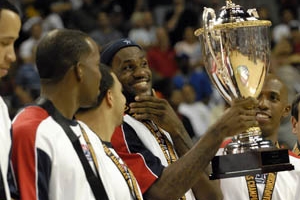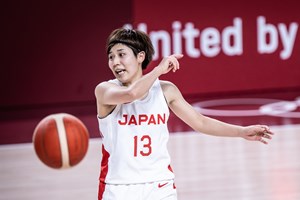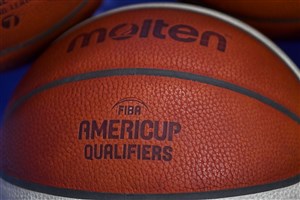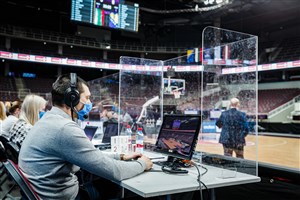
Oscar and Marcel – a truly Brazilian duo
For a lot of people, a game style is built through small associations. Sometimes, its duos, and sometimes it's been Big Threes or Stellar Fours, and we've even had an exaggerated Deadly Five. But no matter the number of constituents, it's paramount that players sync well, coincide in the way they feel the game, complement each other, know how to coexist and build each other up, and that they strengthen the team together and achieve formidable results. And that was precisely what happened with Brazilian players Marcel Ramon Ponickwar de Souza and Oscar Daniel Bezerra Schmidt.
What is that invisible, yet vital element that brought together these two iconic characters of basketball in the Americas? How is it possible that even coming from such distant places, they achieved such an intense symbiosis? Look at the extensive Brazilian map and notice the 2.911 kilometers that separate the industrialized city of Campinas in the state of Sao Paulo (where Marcel was born on December 4, 1956) and the touristic city of Nata, in Rio Grande do Norte, where Oscar was born (on February 16, 1958).
Where did they coincide for the first time while wearing the Brazilian jersey? Two weeks before Christmas, in 1973, they participated in the third edition of the Youth South American Championship, in Bahia Blanca, Argentina. Marcel was 17 and came from Jundiaí Clube, and Oscar was 15. He had just started to play with Unidade Vizinhanza de Brasilia, where he had moved a few years before because of his father's military career.
The winning path in common started to unravel in June 1975, at the following Youth South American Championship played in Araraquara, Sao Paulo. In the final, they defeated an Argentine team that included Mario Scola, the father of Luis Scola, the 2004 Olympian.
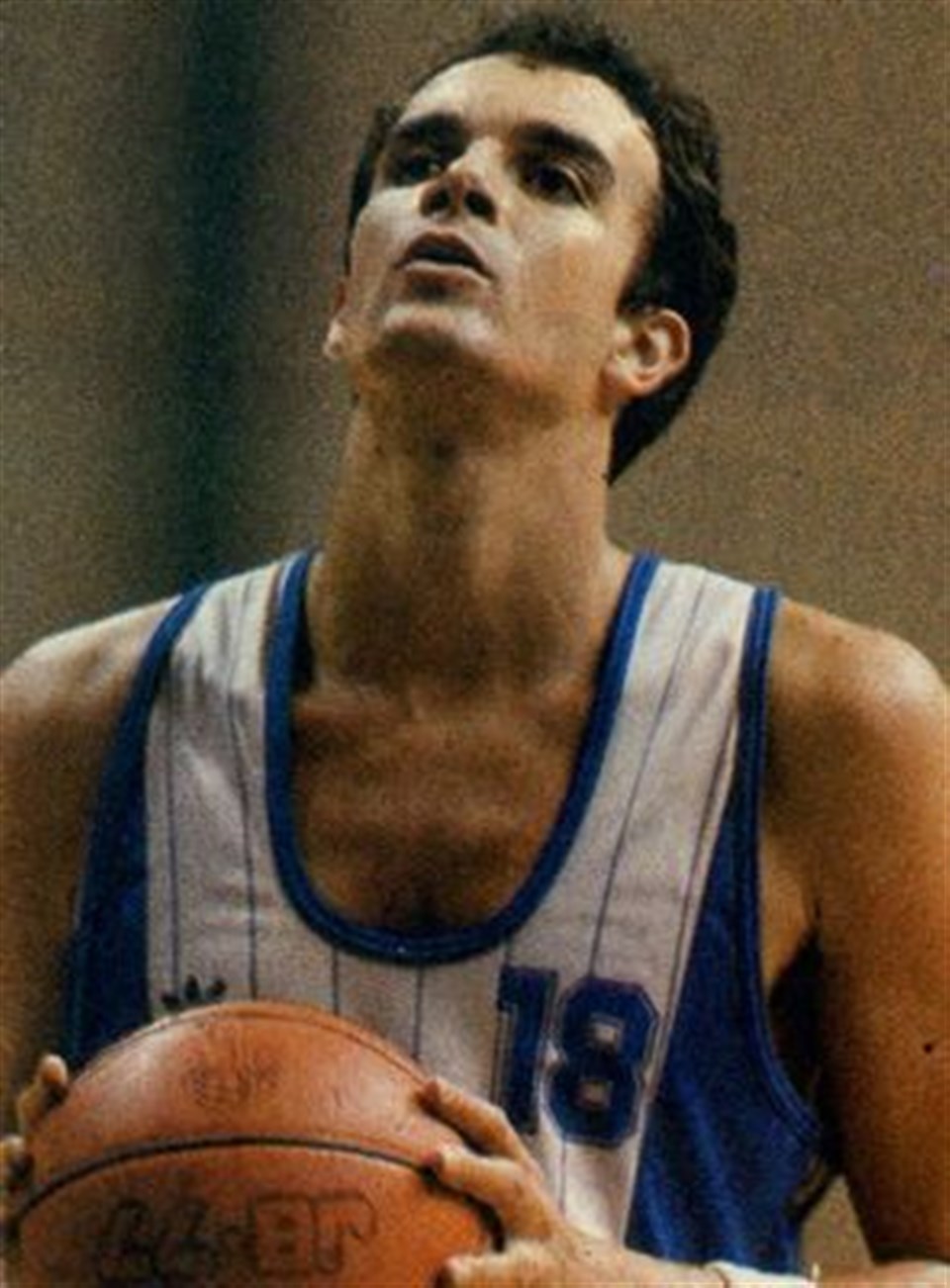
They started to write there a shared story, in which they did nothing else than score a lot of points and be the stars of almost all competitions they attended. They were teammates at Sao Paulo’s Club Sirio from 1978 to 1982, and they also played together from 1983-1984 at the Juve Indesit Caserta of the then powerful Lega de Italia, where Oscar ended with an average of 28.1 points and Marcel with 15.5.
However, they wrote their most glorious chapters in the senior national team, where they played together in the South American Championships of 1977 (champions), 1979, 1983 (champions), and 1985 (champions); the FIBA Basketball World Cups of 1978 (bronze medalists), 1982, 1986, and 1990; the Olympic Games in 1980, 1984, 1988, and 1992; and the Pan American Games in 1979 and 1987. Here, we must pause for a second, because in that last edition in Indianapolis, they were part of one of the greatest feats of basketball in the Americas, defeating the United States in the final, 120-115, with an unforgettable performance by Oscar (46 points) and Marcel (31 points) to take home the gold.
What made Oscar and Marcel such formidable scorers? “We had a rivalry, but it was a positive rivalry. If Oscar stayed after practice to shoot some hoops, I'd also stay. Or the other way around. Many times, with the entire team on the bus, they had to wait for us until we finished our extra shooting exercises. And that effort made us better players,” Marcel remembers.
A short while back, Oscar said Marcel was “his great basketball and life mate.”
It couldn't be any other way. In their Tournament of the Americas' trajectory, they left an unforgettable impression. Their first appearance was in the debut edition of 1980, with Marcel adding up an average of 20 points, while Oscar contributed 18.7. Between both of them, they scored 42.7 of the team's points.
Marcel specifies that "in the field, there never was a rivalry between us. We played against the rival and for whoever was the best that day. We did what was best for the team,” and assures laughingly: “Playing with Oscar was very easy. At the time, the rivals only had one player that defended well, and Oscar was assigned to them, and he would also score points. So, I would be free to do my shots too.”
After not being able to be together in the 1984 Americas title because Marcel was injured, they met again in the Olympic qualifiers of 1988, where they celebrated the continental crown and the qualification to the Seoul games. There, Oscar averaged 30.0 points (36% in 3PTs), and Marcel added 13.1, with 35.6% behind the arch. They scored 43 of Brazil's 56 three-pointers and achieved 44% of the team's points.
To explain in part the success of that iconic duo, Marcel contextualizes things, saying that “it was another era. The defense was much more light, it wasn’t as aggressive, and there wasn’t so much physical contact. Some didn't defend; they just stared at their rivals. Beyond that, we trained a lot to keep up our good aim.”
In the 1989 Tournament of the Americas, although Brazil ended third place, both players’ performance was impressive. Oscar led the scoring table, with an average of 32.8 points and 42% in three-pointers, while Marcel joined him with an average of 24.6 points and 45% in three-point shots. They contributed 48 of the 66 three-pointers by Brazil, and 49.4% of the total points.
Marcel assures that with Oscar, they were "the inventors of the defined counterattacks with three-point shots. At the time, it was thought of as crazy to come in and shoot a three-pointer, but for us, it was natural. And because we had a high effectiveness rate, it was more productive to end that way. Besides, it was something we tried out in practice. We aimed to play like that.”
The former player laughs once again when he shares a fantastic anecdote that includes Guerrinha (Jorge Guerra), the legendary Brazilian point guard of the 1980s-1990s. "When we were in the group, we would taunt Guerrinha, telling him that it was very easy to add assists in the team. He just had to pass the ball once, just once, to the side, and Oscar or I would score. Like that, anyone could add assists."
Oscar’s last appearance in the Americas was in the 1992 Portland tournament. There, he was once again outstanding as a scorer, with 31.3 points per game, and 35% in three-pointers. Marcel added 10.8 points and scored 38% in three-point shots. They both collaborated in 34 of the 50 three-point shots Brazil took in the tournament, and in 40% of the total points.

Marcel assures that the most significant aspect of that Brazilian team, that had him and Oscar as icons, "was creating a unique style of a quick game with a lot of shots, using three-point shots as our main weapon. But, of course, when you have a 44 or 45% effectiveness rate, it's hard to lose. In one tournament, the technical staff analyzed that the average possession per attack lasted only four seconds. Crazy.”
Maybe that's the secret to that unparalleled union built by Oscar and Marcel: how to feel and understand basketball, and interpreting it uniquely and unforgettably. A truly Brazilian way.
Alejandro Perez
FIBA


